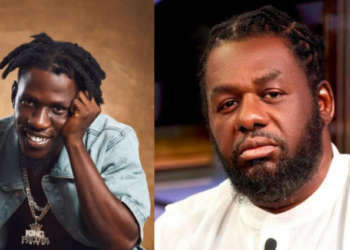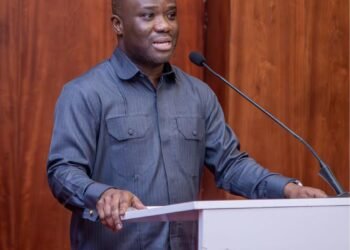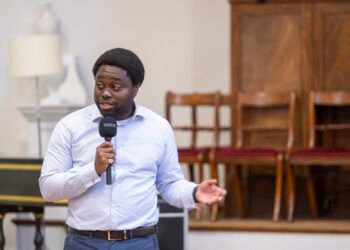The ongoing controversy surrounding the appointment of Dr. Anne Sansa Daly to the board of Ghana’s National Health Insurance Authority (NHIA) has taken on a new dimension, with legal practitioner Richard Dela Sky issuing a powerful critique of the government’s response to what he describes as a serious issue of fake credentials.
In a sharply worded commentary, Sky described the matter as neither trivial nor forgettable, asserting that it strikes at the conscience of the Republic and exposes troubling inconsistencies in state vetting processes.
At the heart of the scandal is a presidential appointment letter dated May 19, 2025, which officially designated Daly as a medical doctor with “expertise in health insurance.”
However, documents circulating publicly—and later verified through official inquiries—raised serious doubts about her purported qualifications.
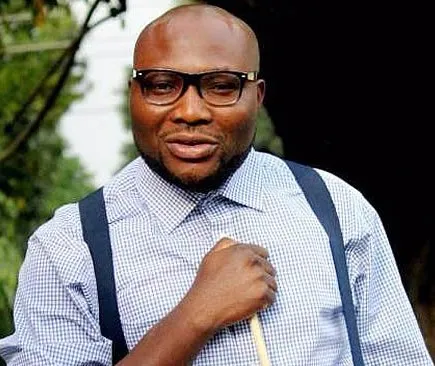
Daly was allegedly said to have trained at the prestigious Johns Hopkins University in the United States, yet both Ghana’s Medical and Dental Council and U.S. authorities have reportedly denied any record of her medical credentials or licensure.
“And yet, the government’s reaction to this grave irregularity has been one of subtle retreat, not forthright repudiation. It now contends that, though the appointment letter is authentic, Ms. Daly was never sworn in. As if the absence of an oath nullifies the presence of institutional faux pas. As if rescinding a misjudgment without naming it absolves the state of its duty to truth and transparency.”
Richard Dela Sky
Drawing from both Ghanaian proverbs and legal statutes, Sky underscored the gravity of the issue.
He noted that Daly’s quiet replacement by Prof. Dr. (Med) Ernest Yorke was welcome but insufficient to resolve the institutional failure at hand.
NHIA Appointment Saga Raises Legal Red Flags
Furthermore, Richard Dela Sky emphasized that the Daly case is not merely about ethics but about legal infractions.
Under the Health Professions Regulatory Bodies Act, 2013 (Act 857), it is a criminal offense to make a false declaration for medical registration, falsely use the title “Dr.,” or practice medicine without proper certification.

Additionally, under Ghana’s Criminal Offences Act, 1960 (Act 29), several provisions—including those on false pretenses, forgery, and the use of forged documents—are potentially implicated in Daly’s appointment.
Sky argued that these legal violations merit more than silence from the authorities.
He also referenced Section 4 of the National Health Insurance Act, which governs NHIA board appointments and requires presidential appointments to be made in consultation with the Council of State. It is here that another inconsistency emerges.
Sky contrasted the muted response to Daly’s case with the aggressive proceedings against Chief Justice Gertrude Torkornoo, who is currently facing a controversial impeachment process triggered by vague misconduct allegations.
He questioned why citizens should trust the Council’s judgment in the case against the Chief Justice when it had remained silent in the face of what appeared to be a public deception involving Daly.
“One would expect that a Republic capable of summoning such constitutional machinery against its most senior judge would, at the very least, express a modicum of institutional outrage and or regret when confronted with prima facie evidence of deception at the highest levels of public appointment. But no. The Daly affair has been met with silence, deflection, and quiet revocation—as though the real offence were public scrutiny, and not the conduct itself.”
Richard Dela Sky
Sky’s critique also targeted the Council of State, which holds dual responsibilities under Articles 70 and 146 of the Constitution—advising on presidential appointments and determining whether prima facie grounds exist for the removal of judges.
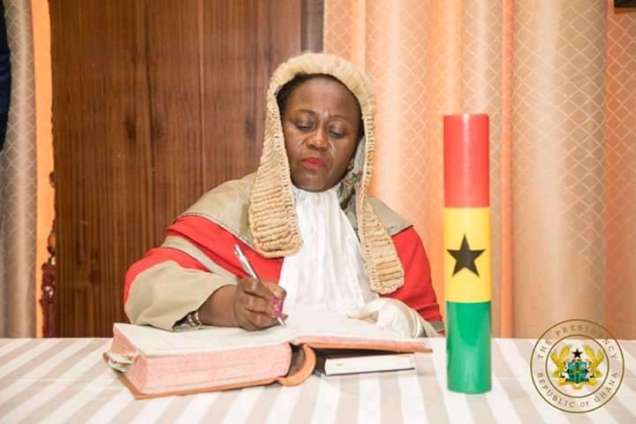
In the Daly affair, the Council appeared to have either missed or disregarded clear warning signs. If a background check was conducted, the facts suggest it was insufficient; if none was done, it signals a serious lapse in duty.
He maintained that the matter should not be quietly set aside with a silent revocation, but should instead spark a broader national reckoning. In his view, truth must serve as the foundation for public office—a standard that was clearly not upheld in this case.
Sky underscored that his criticism was not intended as a defense of any individual, including the Chief Justice, but rather as a demand for governance that is consistent, transparent, and grounded in principle.
Respecting public institutions, he argued, means holding them to the high standards their constitutional mandates require.
“If law still binds, if truth still matters, if public office is still a trust—not a trophy—then we must say without fear of contradiction that the standards being applied are uneven, and the silence being observed is unjust.”
Richard Dela Sky
He stated that his dissent was not driven by bitterness or anger, but by a deep conviction that principles must not be sacrificed for political convenience.
READ ALSO: Convention on Establishment of the International Organisation for Mediation Signed



